Articles & Resources

Sensory Seeking or Sensory Avoiding?
Sensory Behaviours Our brains work 24 hours a day. Every day, our brains are taking in information from the world around us. For many of us, we give this little thought, perhaps even taking for granted the inputs and stimuli we receive from the environment. For others, the world around them offers a constant stream

Children’s Activity: Calm and Colour
Sometimes, we just need an activity that allows us to switch off and zone out, to process our thoughts, feelings and experiences. When we have something to focus on, we can often find it easier to talk as well. So, having therapeutic colouring sheets to work on, whilst having conversations about our challenges or feelings

ADHD, Boredom and Sensory Seeking
ADHD is a neurodevelopmental condition. This means that the brain structure is different in those with ADHD in comparison to someone who is neurotypical. ADHD is associated with a dysregulated dopamine system. Dopamine is a neurotransmitter associated with feelings of pleasure, satisfaction and motivation. Dopamine is linked with movement, memory, pleasurable reward and motivation, behaviour

Children’s Activity: Draw my faces
In surveys completed by Brene Brown and her team, they found that of 7,000 people over a period of five years, on average people can identify only three emotions as they are actually feeling them: happiness, sadness and anger. If you have followed Dandelion for any length of time, you will know that we are

Are you stopping a speeding train?
Are you someone who sees the challenges that others are getting into and finds yourself involved in their worlds, trying to stop them? Are you someone who, when you see someone struggling, you feel an overwhelming need to relieve their struggles? Who shortly afterwards finds yourself exhausted and the other person feeling irritated with you?

Children’s Activity: Where are your feelings?
Identifying that our feelings are fluid, and ever moving supports children to understand that they do not need to always feel ‘happy’. For so many children and adults, there is a pressure to always be ‘happy’, when in reality our feelings move continually throughout the day. Learning to differentiate between different feelings is an important

Why we need to stop blaming social media for diagnosis
Something that has become more prevalent over recent years is the number of professionals that I speak to who blame social media for individuals (adolescents and adults) seeking a diagnosis. Often, this surrounds needs such as autism spectrum disorder and attention deficit disorder, but can branch out to a number of different diagnoses. This might
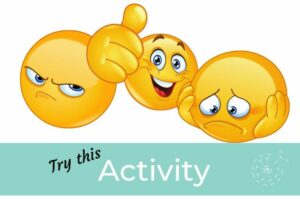
Children’s Activity: Feelings Planner
So often, we find that children (and some adults) struggle to identify their feelings, and are unsure or do not know how to respond to them. A frequent struggle I see in my coaching work, is the challenge of differentiating boredom from sadness and stress from anger. Being able to recognise our warning signs of

5 Ways to Boost Child Self-esteem
We talk a lot about self-esteem, and supporting children to recognise their own value. However, many of our systems have not yet adapted to support children to develop this vital skill. We hear a number of people talk about the influence of ‘social media’ and ‘influencers’ making children feel bad about themselves, and whilst they
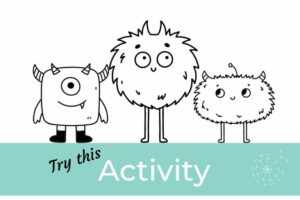
Children’s Activities: Monster Feelings
Empathy It is thought that children develop empathy around 2 years old. At this stage, children begin to show an understanding of how other people feel and recognise that they don’t feel the same way themselves. However, empathy continues to develop throughout life and as children’s brains continue to develop until around 25 years old,

When compassion fatigue strikes
When we are supporting the emotional needs and mental health of others, we can find that caring for ourselves can fall by the wayside. When the balance of self-care and working practice is not well managed and monitored, it can quickly fall out of balance and cause a wide number of implications. The nature of supporting
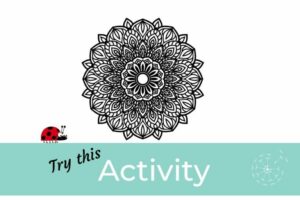
Children’s Activity: Therapeutic Colouring
Sometimes, we just need an activity that allows us to switch off and zone out, to process our thoughts, feelings and experiences. Colouring has many benefits: Develops fine motor skills Supports concentration skills Develops colour recognition Strengthens handwriting skills Encourages relaxation Develops focus Creates a focus on the present Calms a restless mind Develops inner

Tantrum or Meltdown?
When children become dysregulated, it can frequently be seen that they are referred to as having a ‘tantrum’. On face value, tantrums and meltdowns can often look similar, but their role is different. A tantrum A tantrum is usually associated with wanting something. It will normally come to an end once the child has what
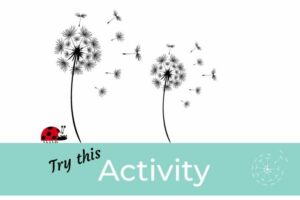
Children’s Activity: What is good about me?
Taking some time to recognise what is good about us is a vital skill for: Increasing our self-esteem Developing our confidence Growing our self-belief Making decisions about our next steps However, so many children that I meet in coaching struggle to tell me what is good about them. Many spend so much time looking at

How does your nervous system affect you?
Inside your body, you have two nervous systems, which make up our central nervous system: Sympathetic Nervous System Parasympathetic Nervous System Sympathetic Nervous System Our Sympathetic nervous system is our Fight-Flight-Freeze-Fawn reaction. Our Sympathetic nervous system is activated when our AMYGDALA in our brain believes that it is under threat. This can be from something
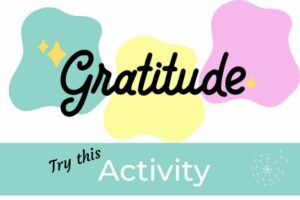
Children’s Activity: Gratitude
Gratitude In recent years, research into the power of gratitude has identified the importance that this practice has on our sense of happiness and well-being. When we practice gratitude consistently, and over time, we can train our brain to focus on what is going well, and develop a sense of optimism. It has been found,
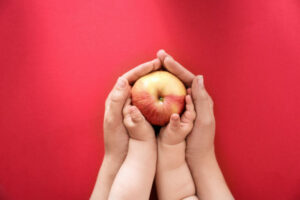
7 Types of Disordered Eating
An eating disorder is a mental health disorder which affects people’s behaviours, attitudes and thoughts around food and exercise.Eating disorders are a way of managing feelings and coping with difficult situations through the micromanagement of food intake. Eating disorders can change and develop new symptoms and behaviours over time. Beat (2020) believe ‘approximately 1.25 million
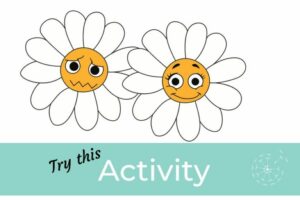
Children’s Activity: Flower Feelings
Feelings A step of emotional literacy development is being able to recognise what our emotions are. Many children can find it challenging to be able to recognise, identify and respond to their emotions, particularly the more subtle feelings. A great first step, is to encourage children to reflect on their feelings, so that they can
DISCLAIMER
The resources on this site are for individual use. They are not permitted to be mass reproduced by other organisations without a licensing fee. The content and resources on this site may not be mass reproduced in whole, or in part and are not for re-distribution by third parties without special permission from the provider. No use of these resources may be made for resale or any other commercial purposes without prior consent and written permission from Dandelion Training and Development. In some cases a licensing fee may apply.
